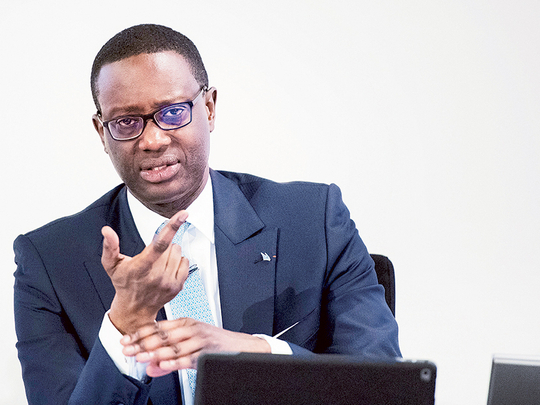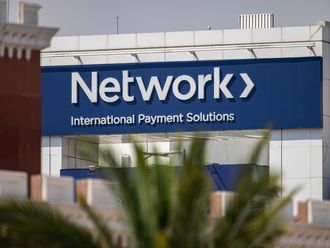
Zurich: Credit Suisse Group AG plans to buy back about 5.9 billion francs ($6 billion; Dh22.07 billion) of debt issued after the financial crisis to the Qatar Investment Authority (QIA) and Saudi Arabia’s Olayan family to cut funding costs.
The bank will redeem the contingent convertible bonds — which automatically become equity when reserves fall below pre-set levels — on October 23, the first opportunity to do so, according to a statement from the bank on Tuesday. Qatar holds about $4.2 billion of the debt and Olayan the remainder, with the two top shareholders entitled to interest of as much as 9.5 per cent on the securities.
The withdrawal of the debt is another sign of Credit Suisse’s emergence from a three-year restructuring that’s cut its reliance on investment banking in favour of a pivot to wealth management, tapping shareholders for billions of francs in funding along the way. Chief executive officer Tidjane Thiam is refocusing the bank as new regulations after the financial crisis — including higher capital requirements — forced it to abandon the investment bank-led strategy.
Repurchasing the bonds is part of a strategy to cut funding costs by about $200 million this year and $700 million next.
The securities were issued in 2011 to comply with Swiss “too-big-to-fail” rules. Regulators conceived the debt instruments after the financial crisis as a way for banks to bolster their capital ratios by tapping debt investors. The lender in July issued a $2 billion high-trigger Tier-1 capital instrument to allow it to redeem the notes.
Qatari investors
The Qatar Investment Authority — the Gulf nation’s sovereign wealth fund — owns about 5.1 per cent of Credit Suisse, making it the bank’s top shareholder. The Olayan Group is the fourth-largest with a stake of about 4.93 per cent, according to data compiled by Bloomberg. The two were among investors that Credit Suisse tapped for 10 billion francs in October 2008.
A Swiss government-appointed committee had proposed in 2011 that UBS Group AG and Credit Suisse, the country’s biggest banks, should hold almost double the capital required under the Basel III rules and use contingent convertible bonds to satisfy part of the requirement. The notes would convert to Credit Suisse shares if the bank’s Basel III common equity tier was to fall below 7 per cent. The bank’s CET1 ratio was 12.8 per cent in the second quarter.










